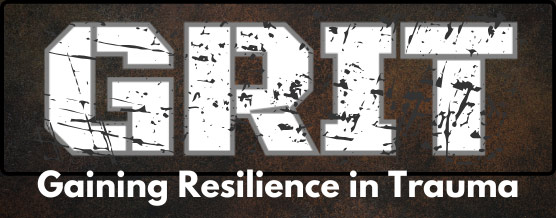
Our Services

Our residential treatment program for first responders typically lasts 3-6 weeks.
Through a customized treatment plan, we offer first responders and their loved ones:
Help to restore relationships and to live their best life
Healing from the work-related experiences and accumulative stress
Hope to live a genuine life, not driven by shame and guilt
Our 15-bed facility is located in the secluded, peaceful countryside of Waverly, TN. Located on over 30 acres, our campus is an ideal setting for your journey to recovery.
Behavioral Health Problems
We offer a unique program exclusively for First Responders with Behavioral Health symptoms associated with work related stress or workplace-induced trauma.
When the impact of accumulative trauma or a single severe traumatic experience overwhelms the ability to cope, clients attempt to self-medicate using alcohol or drugs.
Your Treatment Team
Our program is provided by a multidisciplinary treatment team of professionals, comprised of the following:
- Board Certified Psychiatrist/MD
- Psychiatric Nurse Practitioner
- Psychologist
- Therapist
- Nursing
- Client Care Technician
Each client is a key member of his own treatment team.
Our treatment approach incorporates evidence-based therapies and interventions along with ancillary leisure-wellness components.
Interventions
Integrated Assessment
Your assessment will include medical history, substance use patterns, mental health symptoms, social environment, and treatment history. This assessment is used to create an individualized care plan.
Family Support
Your primary support system will be part of your treatment, participating in weekly sessions. We also provide them with education and support.
Individual Sessions
You will participate in weekly individual sessions with a therapist to work on your treatment plan.
Nursing
You will see a nurse daily for your individual health monitoring needs and for nursing education groups.
Psychiatric Medication Management
Ongoing psychiatric evaluation will determine the medication or combination of medications to reduce or alleviate your specific symptoms. Selective serotonin re-uptake inhibitors (SSRIs), serotonin-norepinephrine reuptake inhibitors (SNRIs), or other medications approved for symptoms of mood disturbance, anxiety, and hyper-arousal associated with PTSD may be prescribed.
Group Therapy Sessions
You will participate in group therapy sessions daily led by a master’s or doctoral level therapist.
Behavioral Health Wellbeing Educational Groups
An informative group therapy conducted by a mental health professional about emotional health, wellbeing, and coping.
Discharge Planning
A comprehensive discharge plan will be created with you to ensure a plan is in place for your continuing care needs, to include follow-up appointments and information about self-help options.
Peer Support
Incorporate peer support services, such as mutual aid groups or peer-led initiatives, to provide individuals with the opportunity to connect with others who have shared experiences.
Evidence Based and Research Based Treatment
Trauma-Focused Cognitive-Behavioral Therapy (TF-CBT)
An evidence-based therapy specifically designed for clients who have experienced trauma. Combines cognitive-behavioral techniques with trauma-specific interventions.
Eye Movement Desensitization and Reprocessing (EMDR)
A proven therapeutic approach involving guided lateral eye movements while the client recalls traumatic memories. This is believed to help process and integrate traumatic experiences.
Cognitive Processing Therapy (CPT)
Focusing on examining and challenging maladaptive thoughts and beliefs related to the trauma, creating a more balanced and accurate understanding of the traumatic experience.
Dialectical Behavior Therapy (DBT)
Includes skills training in emotion regulation, distress tolerance, interpersonal effectiveness, and mindfulness.
Mindfulness-Based Therapies
Mindfulness-Based Stress Reduction (MBSR) or Mindfulness-Based Cognitive Therapy (MBCT) have been shown to help clients develop non-judgmental awareness and acceptance of thoughts and emotions related to the trauma, reducing associated impairment.
Motivational Enhancement Therapy (MET)
Focuses on enhancing motivation to change by exploring and resolving ambivalence. It can be particularly helpful when clients are stuck in their personal recovery efforts.
Trauma-Informed Care
A trauma-informed approach which recognizes the prevalence of trauma among individuals with co-occurring disorders and aims to create a safe and supportive treatment environment.
Relapse Prevention
Strategies will be identified that address both mental health and substance use triggers, helping you to maintain your gains after you complete your treatment. This may include coping skills, support systems, and strategies to manage stress and cravings.
Cost of Care
We do not want the cost of care to prevent you from getting the help you need.
- We work with most Commercial Health Insurance to cover your treatment.
- We work with Workers Comp Carriers to cover treatment for on-the-job injury.
We will review the out-of-pocket costs with you and work out a plan.

